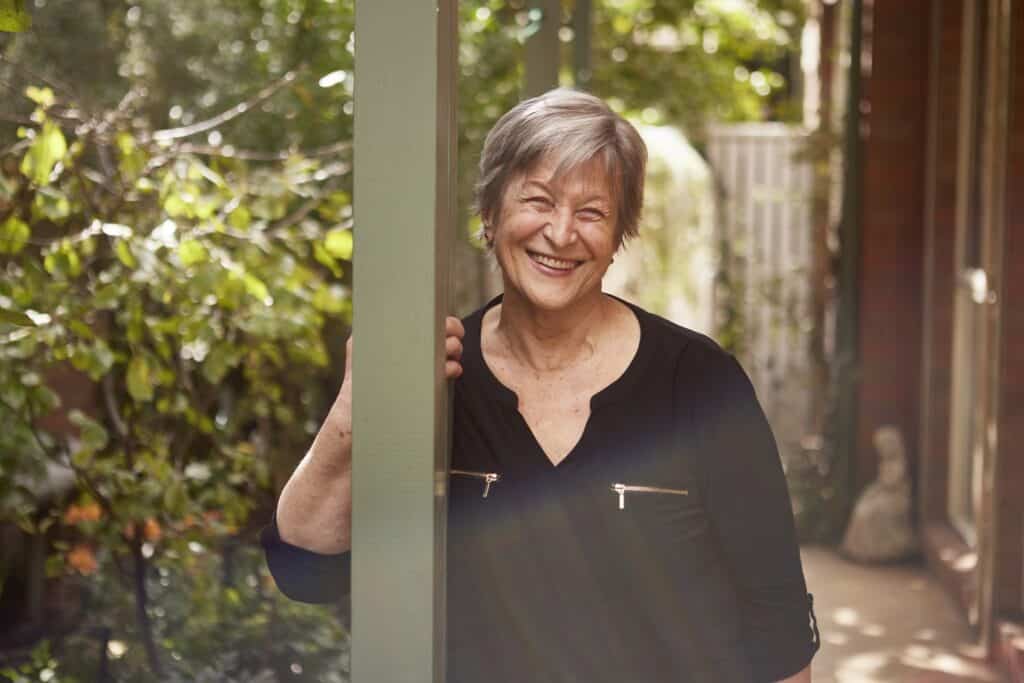Women with HER2-positive metastatic breast cancer may soon have a treatment option that allows for a longer and better quality of life.
Without a cure, metastatic cancer types like this are a devastating diagnosis including the spread of disease to other parts of the body, but researchers are advancing with big breakthroughs to improve patients’ longevity and quality of life during treatment.
Right here in Australia, AUNZ’s largest oncology research group, Breast Cancer Trials is making waves. Their new clinical trial, TUGETHER, is testing to see if the progression of HER2-positive metastatic breast cancer can be slowed down. It’s the first study in Australia that will combine two new medicines– Tucatinib and Pembrolizumab– to the usual treatment in the hope that the combination provides a better approach.

The first patient to join the trial is Maria Bodnar, who was diagnosed with Stage 2 HER2-positive breast cancer in 2013. For the last 10 years, she’s been undergoing treatment, including chemotherapy and radiotherapy.
Several years later when Maria was diagnosed with metastatic disease, she felt like she had two options and, ultimately, decided to stay positive– a more than resilient choice.
“Option one was to just give up and say ‘I’m dying that’s it’,” she said. “Option two was to be positive and take one day at a time and hope for the best and it’s worked for me so far.”
This hopeful outlook led her to take the advice of her oncologist Professor Sherene Loi, who is also the TUGETHER trials Study Chair.
“I was informed of TUGETHER trial by my oncologist,” said Maria. “She provided me with information and I was happy so I said ‘Yeah I’m ready. Let’s do it’ and I’m hoping it will work.”
Professor Loi says this clinical trial is the first step in helping HER2-positive metastatic breast cancer patients live a better quality life for longer.
Around 20 per cent of all breast cancer cases are HER2-positive. It’s a faster growing breast cancer type that can affect many vital functions as it has the potential to spread to other parts of the body, including the brain.

“So this particular trial is looking at this drug called Tucatinib. And this particular drug is really exceptional for reducing cancer in the brain,” said Professor Loi, adding that it can be hard for drugs to get past the brain’s protections.
“This drug is very, very effective at shrinking cancers in the brain, and that’s cool because not only does it shrink the cancer in the brain, but it shrinks cancer in the rest of the body. And it can do that with very few side effects.”
“If we can treat cancer spots in the brain– because as you can imagine the brain has your vital functions, you know, walking, talking, etc.– It can improve quality of life and, of course, allows women to live a lot longer.”
The TUGETHER trial is currently recruiting 50 patients from 16 institutions across Australia, and Professor Loi says it’s important to get the word out in order to see quicker results.
“We have just started, so we have the first patient [Maria] who’s been on the trial, which is exciting,” said Professor Loi. “And we hope that it will still be open for around the next 18 months, and then we should have the results shortly after that.”
“So within two and a half years if we can get the patients. So it’s really important to get patients on the study because the quicker we can get patients on the study, then the faster we know the answer.”.
Speaking to the trial’s high level of support, Maria says she feels like there’s a good continuity of care, which is something that’s important to her.
“I feel relaxed. I feel safe. And I know I’m in good care,” she says.
Maria has a big family – a husband, two sisters, one brother, two children and four grandchildren– and says, for her, clinical trials are important “because it’s my life and I would like to be around when my granddaughters grow up, but also, the results from the trial will help people after me.”
“The more new drugs we have and the more availability for the treatment– it’s better for cancer patients. Not only breast cancer but all other cancers.”
Breast cancer patients interested in participating in the TUGETHER trial should speak with their oncologist for personal medical advice. More information on the clinical trial can be found on the Breast Cancer Trials website, here.

